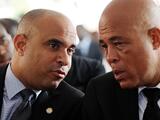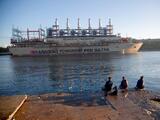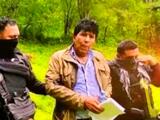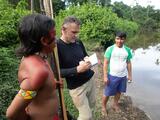President Biden's unforeseen dilemma in Haiti and Cuba
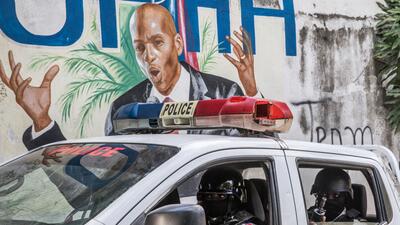
In February this year, the now deceased president of Haiti, Jovenel Moise, warned the world that a coup plot was underway to remove him from power and have him killed, led by leaders of the corrupt Haitian bourgeoisie.
“A small group of oligarchs are behind the coup and want to take over the country,” he said in an interview with the Spanish newspaper, El Pais.
At the same time, a group of Cuban artists released a song, 'Patria y Vida', which went viral and has quickly become the main slogan of the massive protests that took place last weekend in Cuba.
Within just a few days, the White House has suddenly found itself grappling with a whole set of unforseen problems in Haiti and Cuba, in historic "backyard", just six months after President Joe Biden was sworn in.
So far, the White House has shown caution in getting directly involved in Haiti or Cuba, though some experts warn it runs the risk of looking like an ostrich with its head in the sand.
Some Cuban exiles have called for stronger action against the Cuban government, with the Mayor of Miami, Francis Suarez, even suggesting that military air strikes should be considered. Black politicians have also called for more U.S. support for Haiti, fearing even greater turmoil in the political vacuum left by Moise’s killing.
As details trickle out about who was behind the assassination of Moise, investigators allege it was partly organized in the United States by an odd assortment of suspects, including an evangelical Haitian pastor living in the U.S. and some shady characters with ties to drug trafficking who disguised themselves as DEA agents.
While there is no evidence of official U.S. involvement in the plot, questions inevitably swirl around how much U.S. law enforcement knew about the suspected ringleaders, and could more have been done to protect the president?
Plots
Back in February, some of Moise’s advisers warned him that making accusations about plots to kill him, unless he had the evidence to back it up.
“Jovenel said he had intel that they were planning to kill him. I dismissed it at the time. It’s haunting me now,” said Damian Merlo, who worked closely with Moise as his government relations consultant in the United States.
Merlo, who lives in Miami, says he had discussions at the time with senior U.S. officials about the security situation in Haiti. “They were worried. So, I told them if you are worried why don’t you do something to help him,” he said.
Uncertainty about who is Moise’s legitimate successor, has also raised major questions about the United States role in the future stability of the country, and whether an international military force is needed to ensure elections due to be held later this year.
“This puts the US in a difficult, super difficult, situation. They must be pulling their hair out trying to figure this out,” said Luis Moreno, a former acting U.S. ambassador to Haiti who also served in Colombia and Mexico.
When asked about U.S. strategy, a State Department spokesperson told Univision: "The United States is engaged in close consultations with our Haitian and international partners to support the Haitian people and Haiti’s democratic institutions."
Insecurity
The acting Haitian government has requested international military support. The Biden administration has says it has no plans to send U.S. troops at this stage, but experts say and international force could involve other countries. A previous United Nations military forces, MINUSTAH, was made up largely of Brazilian and Chilean soldiers.
Haiti’s 16,000-strong police force lacks equipment and is currently struggling to cope with the slum gangs.
An international police contingent of 500 highly-trained officers could be enough to secure elections, according to former Haitian prime minister, Laurent Lamothe. “It could have a very limited scope for a very limited time. We only have to get rid of 10 gangs. It’s not like we are having a guerrilla war,” he told Univision.
Lamothe, author of a book on Haitian politics, "The Hands of the Prime Minister," said elections scheduled for later this year could still go ahead, and a budget had already been set aside, though others are far more dubious about that being feasible.
Experts say Biden is handicapped by not having his full team in place, especially at the State Department where the upper ranks were decimated during the Trump administration.
“They are spread very thin. And there’s so much going on in the region with the situation in Cuba, Haiti, Venezuela, Central America, and Colombia,” said Moreno, noting that 60 per cent of the agency’s senior diplomats resigned or were kicked out during the last four years.
“Haiti is always on the back-burner but you never know when it can explode,” he added.
Cuba
Meanwhile in Cuba, the widespread street protests have shone a bright light on the many problems facing Cubans, especially the lack of food, poor wages and state control of the economy, que se han visto acentuados por la pandemia del coronavirus.
After starting his presidency by saying Cuba would not be a priority, Biden is now under pressure from all sides to rethink his policy. Some are calling for a relaxing of the decades-old economic embargo to allow more food and remittances into the island, as well as sending vaccines.
But others, including some Democrats, are calling for additional sanctions fearing that a weak response from Biden could further undermine the party’s support among Cuban exiles in south Florida. During his four years in office, Trump made himself wildly popular with right wing Cuban exiles in south Florida by enacting some of the toughest economic measures against Cuba in decades.
Haiti "fatigue"
The Biden administration does have senor officials with considerable Cuba experience, such as Juan Gonzalez at the National Security Council and Ricardo Zuniga at the State Department. But Haiti is a different story.
“There’s nobody on staff who has Haiti expertise,” said Eduardo Gamarra, a Latin America and Caribbean expert at Florida International University who has done polling work in Haiti and met Moise.
The U.S. was deeply involved in helping Haiti recover from the 2010 earthquake which killed 200,000 people. “The was very concerned and engaged and then Haiti fatigue set in,” said Gamarra.
A United Nations peacekeeping force in Haiti, known as MINUSTAH, which was created following the violent overthrow of another president in 2004 - was eventually terminated in 2017. But many questioned if its mission - to train and support a civilian police force - had been achieved.
U.S. President Donald Trump pledged investment in a rare meeting in March 2019 with five Caribbean leaders, including Moise, in return for siding with the United States in backing Venezuelan opposition leader Juan Guaido as head of state.
PetroCaribe
For years previously, Haiti was beholden to Venezuela’s PetroCaribe program which offered cheap gasoline with delayed upfront payments, allowing the government to put aside $600 million a year for investment projects. By comparison, the U.S. was only offering $150-200 million a year.
However, the PetroCaribe program ended up in allegations of massive government corruption, and left the country saddled with an unpayable debt.
By the time Biden took office, the country was already in political and economic chaos, with parts of the capital run by gangs.
“Biden was hoping to have elections, get it out of the way, and then figure things out when there’s a new president,” said Gamarra.
That scenario is now in doubt after the assassination of Moise, leaving little option but to order foreign troops back, he said.
“I don’t see what else can be done. The police don’t have the ability to stabilize the country,” added Gamarra.
